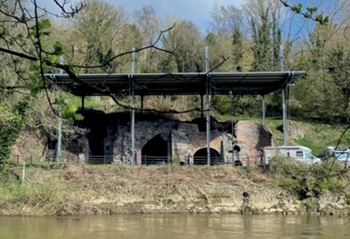Balanced scorecard
The government suggests that a balanced scorecard (BSC) approach to procurement is:
| …is a way of developing a procurement (e.g. the requirements and evaluation criteria) so that more straightforward matters such as cost, are balanced against more complex issues such as social and wider economic considerations. |
The approach can be used on any projects, but in October 2016, was adopted by the Cabinet office for projects of more than £10 million. Ref gov.uk.
Government departments are encouraged to adopt the approach where there are clear benefits to doing so, when designing major works, infrastructure and capital investment procurements where the value is more than £10 million. This including works in the National Infrastructure and Construction Pipeline, published in December 2016.
The approach has already been used by the Olympic Delivery Authority, and for the HS2 programme, as well as on private projects such as the procurement of Heathrow T5.
The government suggests that the ‘model balanced scorecard strategic policy themes’ are:
- Solutions quality.
- Cost.
- Supply chain.
- Employment / skills.
- Environmental sustainability.
- Health and safety.
- Outcome benefits.
All departments with in-scope construction, infrastructure and capital investment procurements must:
- Consider each of the Strategic Themes and Critical Success Factors (CSFs) of the model scorecard in relation to the objectives of the project, determining whether there are associated requirements that should be incorporated into the procurement.
- Identify whether for a specific exercise there are other project or sector-specific themes and CSFs with associated requirements.
- Produce a procurement-specific balanced scorecard that captures and communicates the objectives for the procurement, how these relate to specific project requirements and thus to evaluation of tenders.
- Publish their balanced scorecard with the procurement documentation to form a clear summary of how the procurement will deliver the project vision.
For more information see: Procurement Policy Note – Procuring Growth Balanced Scorecard, 14 October 2016.
The balanced scorecard approach has subsequently been endorsed by:
- Industrial Strategy: building a Britain fit for the future.
- Construction sector deal.
- Transforming Infrastructure Performance.
See also: Project scorecard.
[edit] Related articles on Designing Buildings Wiki
- Autumn Budget 2017.
- Best value.
- Building our Industrial Strategy: green paper.
- Cities as systems - BRE Solutions for urban environments.
- Construction sector deal.
- Industrial Strategy: building a Britain fit for the future.
- Procurement of Heathrow T5.
- Procurement.
- Project scorecard.
- The Public Contracts Regulations.
- Transforming Infrastructure Performance.
Featured articles and news
The act of preservation may sometimes be futile.
Twas the site before Christmas...
A rhyme for the industry and a thankyou to our supporters.
Plumbing and heating systems in schools
New apprentice pay rates coming into effect in the new year
Addressing the impact of recent national minimum wage changes.
EBSSA support for the new industry competence structure
The Engineering and Building Services Skills Authority, in working group 2.
Notes from BSRIA Sustainable Futures briefing
From carbon down to the all important customer: Redefining Retrofit for Net Zero Living.
Principal Designer: A New Opportunity for Architects
ACA launches a Principal Designer Register for architects.
A new government plan for housing and nature recovery
Exploring a new housing and infrastructure nature recovery framework.
Leveraging technology to enhance prospects for students
A case study on the significance of the Autodesk Revit certification.
Fundamental Review of Building Regulations Guidance
Announced during commons debate on the Grenfell Inquiry Phase 2 report.
CIAT responds to the updated National Planning Policy Framework
With key changes in the revised NPPF outlined.
Councils and communities highlighted for delivery of common-sense housing in planning overhaul
As government follows up with mandatory housing targets.


















